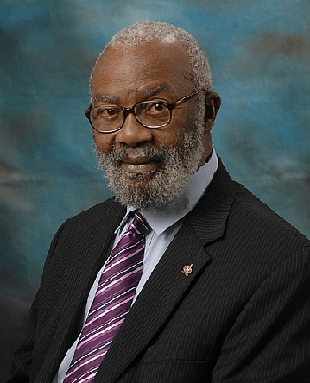Don’t feel guilty to take a rest any time you need it. If you need a rest, you deserve it. Relaxation or engaging in a refreshing activity is a necessity if you want to be productive in your work. God rested after the creation processes. “And on the seventh day God ended his work which he had made, and he rested on the seventh day from all his work which he had made” (Genesis 2:2 NKJ).
Do you know that God wants even animals and the land to rest like human beings? Exodus 23:10 -12 says, “Six years you shall sow your land and gather its produce, but the seventh year you shall let it rest and lie fallow…Six days you shall do your work, and on the seventh day you shall rest, that your ox and your donkey may rest…
” Every wise farmer understands the principle of crop rotation so that the soil can replenish at least one growing season. It has been found that the soil from the fields that were not left uncultivated every seventh year yielded less nutritional solids than the ones that were left fallow the seventh year.

In Mark 6:30-31, Jesus demonstrated this principle of rest after work. After the apostles narrated to Him the successful ministration they had, Jesus simply told them, “Let’s go off by ourselves to a quiet place and rest awhile.” Following this incidence, I regard rest as a reward for accomplishing a task. For example, whenever I complete writing an article as planned, I congratulate and reward myself with a good refreshing break. I get out of my office, stretch my body, take some water, walk around the premises, talk to people and breathe fresh air.
This principle of rest after an activity is an important one for our health. Rest is crucial to the health of the body. Sleep is an absolute and undeniable necessity of life. As our energy level goes down and wastes accumulate, we experience fatigue and a desire for rest. During rest, energy is restored, and the waste buildup is diminished. Rest and sleep are dependent on upon our ability to relax. The person who is tense is not relaxing, and therefore cannot really rest. Fatigue is protective in that it serves to make us aware of our need for rest. As fatigue increases, efficiency and performance decrease. Other factors like overeating, lack of exercise, stress, stale air, and not drinking enough water can produce fatigue.
Rest or relaxation slows the heart rate, reduces blood pressure, and slows the rate of breathing, which reduces the need for oxygen, increases blood flow to the muscles and decreases muscle tension. Rest or relaxation results in more energy, better sleep, increased concentration, greater efficiency, better problem-solving abilities, less headaches and pain.
We all need a rest, or break, from the routine of our major activities. When you are sick or diseased, your body is giving signs that it is time to rest from work. It is also trying to tell you to rest from foods that are difficult to digest. Stop drinking coffee and eating foods that are high in sugar and caffeine, which may help you to keep on working. Coffee, kola nuts and cigarettes provide artificial stimulation, but without recuperation. The underlying fatigue is still there.
Serious fatigue can manifest as general breakdown of the body. Sometime ago, a friend returned from Vienna, Austria, for the burial of his mother and had a very hectic time with his people he abandoned for about fifteen years. Throughout the period at home, he was involved in one problem or the other and did not have enough rest or sleep. The feeding was poor and he even had bouts of malaria attack. When he returned to Lagos on his way back to Vienna, he had lost some weight and looked depressed. He took a night flight to resume work the following morning. Two days after, he phoned me from a hospital where he was on admission. Diagnosis: excessive fatigue.
Rest is so important to life that the vital organs are designed with built-in rest periods. The heart rests between each beat, and the lungs between each breath. The stomach rests between meals. The central nervous system is recharged during sleep. Rest and relaxation cannot take the place of sleep. Human beings are designed to be awake during the day and asleep at night. Wakefulness and sleepiness are normally controlled by enzymes and hormone systems within the body. The “internal clocks” can be adjusted forward or backward. They may be also be ignored, but not without negative consequences. Besides giving us the night for regular sleep, the Creator programmed human beings and animals to rest completely every seventh day.
Studies have shown that we need 7-9 hours of sleep per night to maintain good health. Going to bed early (before 10.00 pm) is conducive to health. It has been found out that one hour of sleep before midnight is worth two after midnight.
Getting enough rest can help you to effectively cope with stress. When we are burdened with thoughts and worry, they have adverse effects in our bodies. Taking time to absolutely do nothing and rest our minds can have wonderful health benefits. It is during this time of rest that we are free to recuperate, recharge, meditate and contemplate.
There are many things that cause us to lose our rest – anxieties, troubles, insecurity, businesses, greed, covetousness, fear of unknown etc. This is why Jesus says, “Come unto me, all ye that labour and heavy laden, and I will give you rest (Matt. 11:28).









